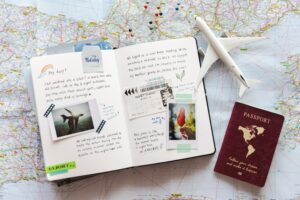How to prepare for your next student tour group travel experience
American culture, from its customs, beliefs, and traditions are unique; and often highly sought out and replicated. However, what might be considered ok behavior on our shores may not always be acceptable when traveling to other parts of the world. Traveling can sometimes be stressful, yet an enriching and educational experience at the same time. When you travel internationally on a student tour, you’ll encounter new perspectives, customs, and beliefs that may seem strange but that’s what makes those countries unique just like ours. Students and teachers have the opportunity to create memories that will last a lifetime as they take in their new surroundings. So, whether you’re exploring the Fjords in Scandinavia or sipping from a coconut in Central America, you can limit the stress of your travel and improve your stay by learning a few of the social norms for where you will be visiting on your educational student tour.
Student Travel Cultural Etiquette
Before indulging in what a new place has to offer, it’s important to do some research to ensure you do not cross the line for something considered taboo to locals or go against another country’s values. The most common values that may differ from our American ones are that of religious and political beliefs as well as societal customs. While these are factors that make a region unique, researching them beforehand will help you to prepare for what you may encounter and ensure you are not doing anything offensive. Avoiding discussions about politics or religion unless directly asked is always the safest choice. It’s also advisable to make yourself familiar with the dress codes, dining habits, greetings both formal and informal, social behavior, and the country’s overall culture. A little research will help you blend in during your student tour, and locals will open up quickly to help you understand what it is like to live there, rather than simply observing the culture as an obvious tourist. After all, you are stepping into their way of life as a visitor so getting a feel for their style before you travel will make your experience much richer!
Student Travel Dress Code
Depending on where you are touring, how you dress can set you back in the eyes of locals. Some countries find inappropriate styling as a sign of disrespect. For example, casual clothing that is often worn in the United States is viewed as unacceptable in parts of the Middle East and Asia if too much skin is showing. Whereas, in France, it is expected that you look presentable and well-styled, and they are more open to more exposed skin (within reason). Taking the time to analyze, and perhaps consult with your teacher or group leader, what is appropriate to wear for the countries you’re visiting can show their citizens that you respect them and their culture. After all, your outward appearance is the first thing people will notice about you, and the last thing you want is to offend the locals as soon as you walk out of the airport doors to begin your educational tour.
Student Travel Dining Habits
Trying new food is one aspect of your student tour that certainly will be one of your most memorable experiences. To ensure your dining experiences enhance instead of distract from your travel, it’s important to recognize every country’s dining habits can vary as much as their food. Before departing, spend some time reading about your destination’s delicacies, special dishes, how they prepare and serve the food, and what’s considered the best way to it. How much/if at all you should tip your server at the end of the meal. You wouldn’t want to make a cultural faux pas and ruin your dining experience. For example, Americans typically use utensils, while in countries like Ethiopia, you are expected to use your right hand (and right only) to scoop portions of food into your mouths. As far as gratuities are concerned, Japan and many other Asian countries have a no-tipping culture where wait staff are fairly compensated from the cost of the meal. Parts of Europe may add a small service charge to your bill, specifically for the wait staff, in place of expecting you to leave something extra on the table as you leave.
Student Travel Personal Introductions
Greeting etiquette is another aspect which can make or break your travel experience. A simple “hello” in the United States is acceptable, but in some parts of the world, you may have to take an extra step to avoid offending the locals. The Hispanic culture, like those in Mexico and Costa Rica, are extremely family oriented. A visitor may expect a hug, a kiss on the cheek, or both. In contrast, many Asian cultures are very uncomfortable if someone other than a direct family member touches them at all and instead greet each other with a bow or head nod with eye contact. In Nigeria, you may be in serious trouble if you do not formally greet a resident or accept whatever gift they may offer. No matter where you travel, it should be made clear that typical residents of the area will be more than willing to help you and your fellow student travelers with the appropriate welcome if you’re at all aware of their customs and attempt them yourself. So before travelling, be sure to understand the cultural norm for personal space.
There are so many opportunities to research and learn about your destination before you travel to help you get the most out of your international travel experience. For some travelers, your first overseas experience may seem overwhelming, but our team at EA Tours is here to take the stress out of the equation. EA Tours provides all student travelers with top-notch guides who know the area from the backroads to the charming side streets. Our skilled guides help ensure those who travel with us are safe and comfortable, all while learning about what makes your school’s chosen destination so special while your group leader will help make sure you follow local cultural etiquette as much as possible. We’ll meet at the beginning of each day to talk through what is expected and then again and end of the day to share what was learned and made the day truly memorable.
So, where is your dream destination? Contact EA Tours today to book Your Trip, Your Way!
Kade Bergeron
Student Traveler



